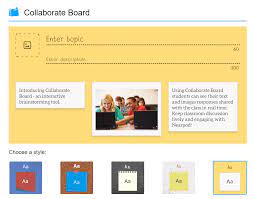Introduction
Examinations have always been a crucial part of our education system. They serve as a significant tool for evaluating students’ learning, skill sets, and knowledge acquisition. This article aims to explore the various aspects of examinations, their purpose and types, and discuss the impact they have on students and the education system as a whole.
Purpose of Examinations
Examinations can be defined as a formal assessment technique designed to test a student’s knowledge, skills, or ability in various subject matters. The primary purposes of examinations include:
1. Evaluation: Examinations offer educators an opportunity to evaluate what the students have learned during their course of study. This helps them to identify areas where improvement is needed.
2. Motivation: Exams serve as a stimulus for students to study conscientiously and consistently by setting tangible goals and deadlines.
3. Certification: Exams provide the necessary qualification or certification that indicates an individual’s competence in specific fields or subjects.
4. Feedback: Test results serve as a source of feedback for both students and instructors regarding the effectiveness of teaching methods and study materials.
Types of Examinations
Examinations can be classified into different categories based on their objective, format, or mode of administration:
1. Formative Assessment: These assessments are geared towards providing ongoing feedback that helps teachers adjust their teaching methods and students improve their learning capabilities.
2. Summative Assessment: Summative assessments are typically conducted at the end of an instructional period to measure student’s achievement and are more result-driven.
3. Diagnostic Assessment: Diagnostic tests help teachers identify knowledge gaps, weaknesses, strengths, and learning preferences among their students at the outset of a course or unit.
4. Objective Examination: These exams include multiple-choice questions (MCQs), true/false questions or fill-in-the-blanks that allow precise scoring and quick evaluation.
5. Subjective Examination: Subjective exams include essays or short-answer questions, requiring students to demonstrate their thought, knowledge, and understanding of a given topic.
Impact of Examinations
Examinations can have both positive and negative effects on students and education as a whole:
1. Positive Impact:
a. Exams encourage self-discipline, time management, and hard work.
b. They help students in setting and achieving academic goals throughout their academic careers.
c. Exams foster healthy competition among peers and promote the overall growth of students.
2. Negative Impact:
a. Exams can lead to stress, anxiety, and pressure among students due to the competitive environment.
b. Focusing solely on exam results may detract from a well-rounded education encompassing extracurricular activities and personal development.
c. The risk of cheating or engaging in unethical practices increases with the pressure to achieve good grades.
Conclusion
Examinations are indispensable in modern education, offering an opportunity to measure learning progress while instilling vital life skills such as perseverance and goal-setting. However, it is essential to strike the right balance between exam-oriented teaching techniques and a holistic approach that fosters innovation, critical thinking, and personal growth while ensuring academic success.





